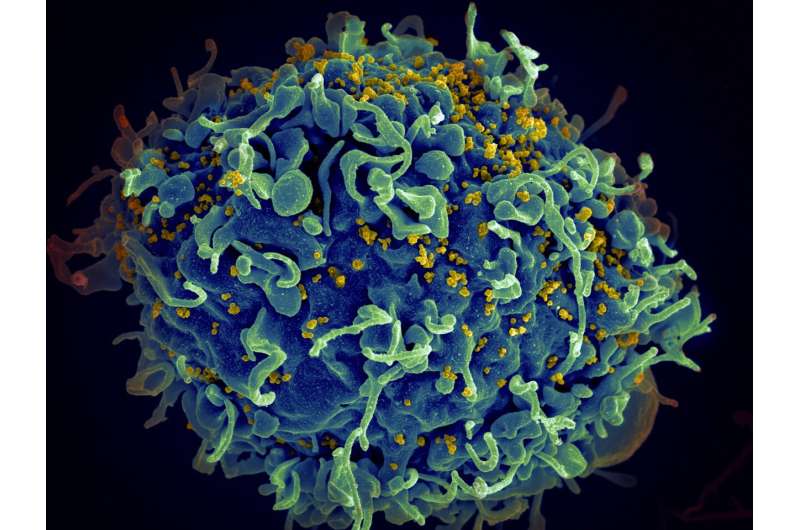This article has been reviewed according to Science X's editorial process and policies. Editors have highlighted the following attributes while ensuring the content's credibility:
fact-checked
peer-reviewed publication
trusted source
proofread
Tuberculosis disease intensifies HIV antibody response in people with HIV

New research from Boston Medical Center found that people living with HIV that have had pulmonary tuberculosis had broader and more potent HIV antibody responses and differences in HIV sequences predicted to be antibody resistant as compared to those without suspected or documented tuberculosis. Published in iScience, the study suggests that concomitant tuberculosis disease has a significant impact on HIV immune responses and the viruses circulating in people living with HIV.
Tuberculosis infects more than 2 billion people in the world, and although tuberculosis is the most common co-infection in people living with HIV, previous studies have not examined how tuberculosis impacts HIV immune responses and virus characteristics.
This study suggest that tuberculosis may impact the efficacy of antibody based prevention and therapeutic strategies. Vaccines to elicit antibodies and antibodies are also being investigated as a means to treat and cure HIV. Higher prevalence of antibody resistant strains along with tuberculosis disease implies that these antibody-based interventions are more likely to in fail in these individuals.
"Tuberculosis is extremely common, especially in regions of the world with high levels of ongoing HIV transmission, and impacts both the immune responses and the characteristics of the circulating virus in people living with HIV so it is imperative we understand the relationship between the two," said Manish Sagar, MD, an internist at Boston Medical Center and Professor of Medicine at Boston University Chobanian & Avedisian School of Medicine. "These studies have implications for HIV vaccines and antibody based HIV therapeutics."
Researchers worked closely with investigators in Uganda and at the AIDS Clinical Trial Group (ACTG) to collect samples from people newly diagnosed with HIV that either did or did not have tuberculosis. From these individuals, they examined samples collected prior to and about 6 months after the start of HIV medications. Researchers compared antibodies, plasma inflammatory markers, and HIV sequences in the baseline and in treatment samples.
Tuberculosis disease is associated with higher prevalence of the some antibody resistant HIV. High ongoing HIV transmission in areas of the world with frequent tuberculosis disease suggest that a potential vaccine that elicits broad and potent antibodies may not work because these geographic regions are more likely to have antibody resistant strains.
Researchers highlight that this study has implications for HIV vaccine strategies as they aim to generate antibodies that can block the virus after exposure. Generating broad and potent HIV antibodies has not been accomplished and remains a monumental challenge. But Tuberculosis disease generates broadly potent antibody responses and dissecting biological pathways that provide insight into how tuberculosis enhances HIV antibody responses could be leveraged to develop novel strategies for eliciting broad and potent HIV antibodies.
More information: Bukola Adeoye et al, Mycobacterium tuberculosis disease associates with higher HIV-1-specific antibody responses, iScience (2023). DOI: 10.1016/j.isci.2023.106631



















